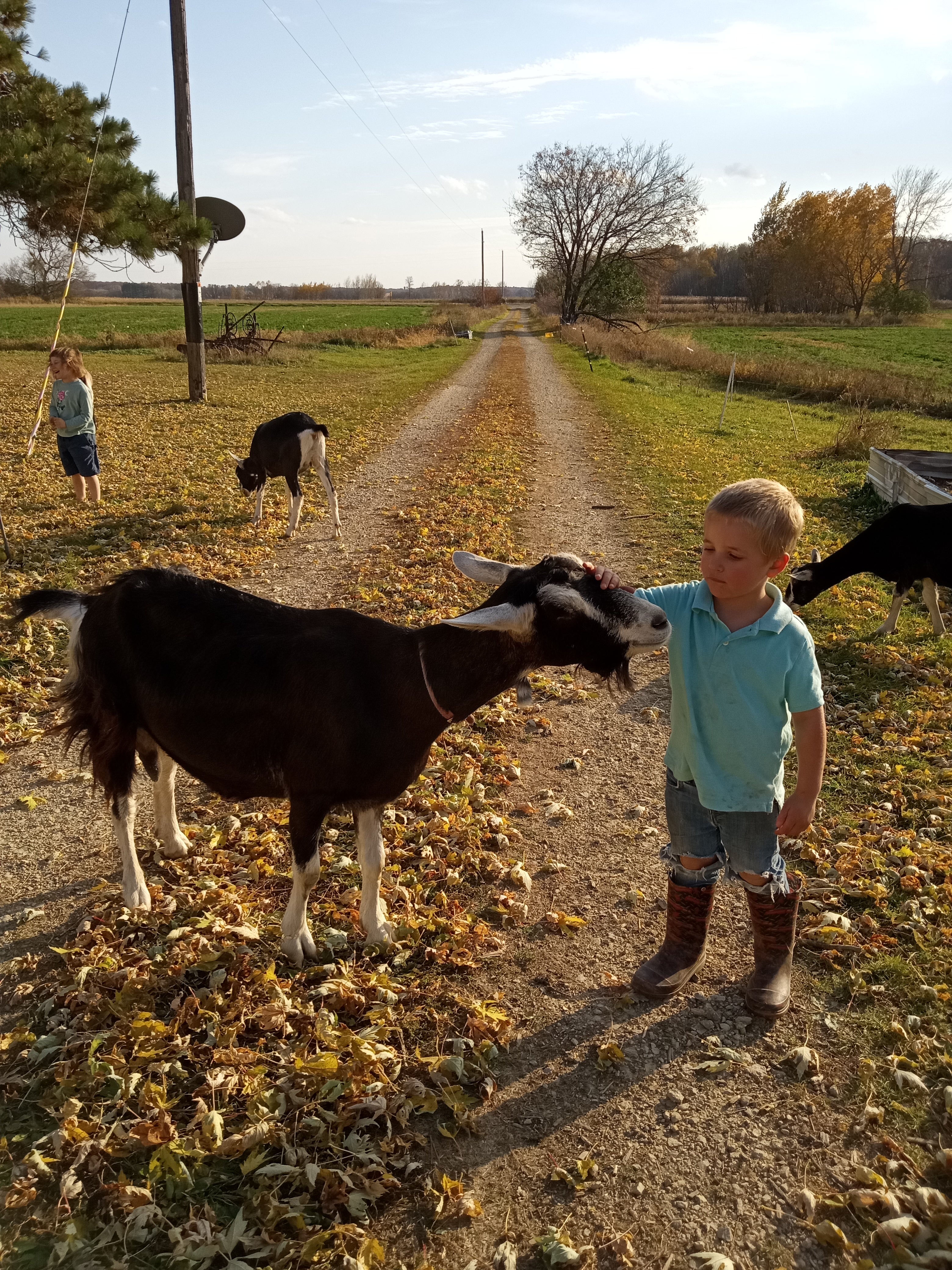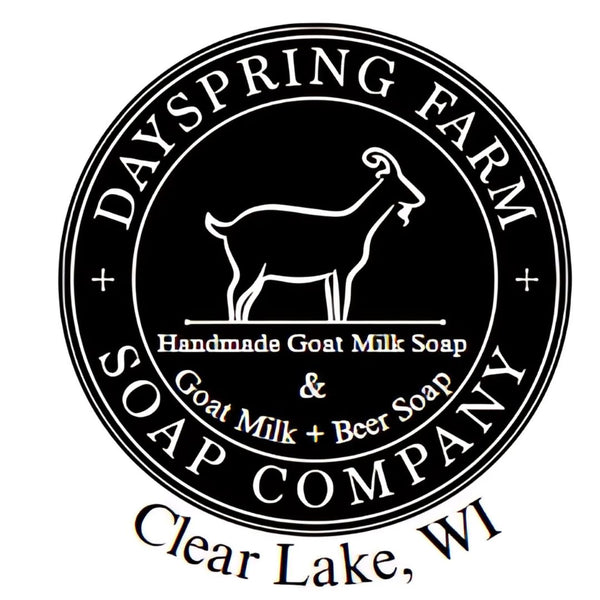
Frequently Asked Questions
Why goat milk soap?
For thousands of years goat milk has been known for its gentle, nourishing effect on your skin. It cleans gently, minimally disturbing the skin's protective barrier. Caprylic acid is a naturally occurring triglyceride in goat's milk, and has been shown to be naturally antiviral, antifungal, antibacterial and anti-inflammatory. Goat milk is rich in fatty acids and cholesterol, which are critical components of your skin membrane. It also is rich in nutrients like vitamin A (thought to be anti-aging) and selenium, which has been shown to support healthy skin.
What else is in your soap?
What IS in our soap: "Simple" is our favorite word in just about everything. The basic blueprint for all of our soaps is natural fats (lard or tallow), coconut oil, olive oil, skin-nourishing castor oil, and goat's milk. Some soaps contain essential oils or fragrance oil that are tested safe for skin. Our oats are certified gluten-free (yeah, we speak gluten-free around here ). See more about all of our ingredients here (plus some soap-nerdery about why we chose them).
What ISN'T in our soap: Sodium lauryl sulfate, sodium laureth sulfate (or any sulfate), parabens, pthalates, or any weird chemical ingredients (those just listed are known for being tough on skin, possible carcinogens, or likely to cause organ damage - eek).
How much goat milk is in your soap?
Without getting too soap-nerdy on you, there are a few ways to add goat milk to soap and for most companies it's proprietary information. We have our own goats, and their milk is not in short supply! So we add just about as much goat milk to our soap as we can. For most of our recipes we replace the entire water content with goat's milk. Who wants to skimp on those skin-nourishing ingredients?
Does your soap contain lye?
All true soaps are made with lye, which in our mind beats the "synthetic detergent products" you find on most store shelves. By the time it reaches your skin, a chemical conversion has happened - saponification - which means there's no lye left in the soap. For chemistry nerdiness see "Saponification" - but in short, if you add an alkali (lye) to water and then add that to a fat, chemistry magic happens and you're left with the salts of fatty acids (soap).
Is bar soap sanitary?
These days a lot of folks gravitate to body wash. They think bar soap hits your skin, picks up bacteria or other yuck, and then sits in the soap dish proliferating nastiness. I used to be one of them! Then I found out that the pouf or washcloth I was using was like a pretty-scented petrie dish multiplying microorganisms between washings. I also found out that recycling that plastic bottle in the US is a hit-or-miss proposition: not all localities recycle, not all plastic body wash bottles can be recycled.
When you combine water and the surfactants from soap and you scrub, germs are physically removed from your skin and washed down the drain. You have a natural skin microbiome, and some of the microorganisms from it may stay on your soap bar, but those aren't the microorganisms that cause problems. For more check out this article from Weill Cornell Medicine Dermatology.
Is your soap made with animal ingredients?
Well...yes. That's why it's nourishing for your skin. Goat milk, tallow and lard are natural ingredients that have properties in common with our own skin - for instance, fats that are close in molecular structure to our own. Tallow and lard are fats from (usually) cows and pigs, respectively. That means they moisturize our skin better than almost anything and also contribute nutrients that just make skin healthier so it can show its natural glow.
Animal products offer us natural sources of nutrients that are either otherwise unavailable, must be created in a lab, or are sourced from plants in a manner damaging to the environment (palm oil is a common soap ingredient whose harvest has had devastating environmental impact. Attempts to sustainably source it have not been particularly effective - see here for more information).
Finally, making soap from animal products means that materials are being used that would otherwise go to waste (tallow and lard are often thrown out), and that's just good stewardship of resources - another thing we strongly believe in.
Will your soap help my skin condition?
My older son has had eczema since infancy, both he and his little sister have extremely sensitive skin, and after my fifth pregnancy I developed some eczema myself. In Wisconsin in wintertime, dry skin is a fact of life, and if you wash your hands a million times a day, as parents do (post diaper change, post mess, pre-food prep!) or a billion times a day as farmers do (farm dirt!), your skin just may begin to crack or even bleed.
The good folks at FDA tell me I can't say our soap does anything for you but clean. What I can say is, I believe our skin definitely has benefitted since we switched to using only our natural handmade soaps. The splitting skin on my fingertips has healed, I no longer have dry skin, and my kids' skin doesn't get irritated after washing. Our soap ingredients support skin health, and just as important, our soaps are free of common skin irritants.
Moreover, around here we're also familiar with the frustration of looking at a million ingredients and trying to identify whatever the heck it is that's causing an irritation. Fewer ingredients means fewer potential problems.
